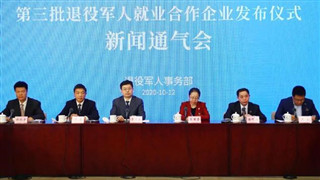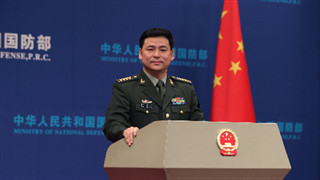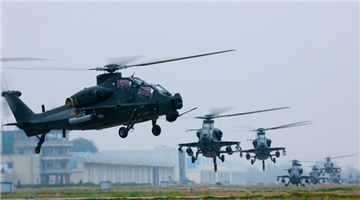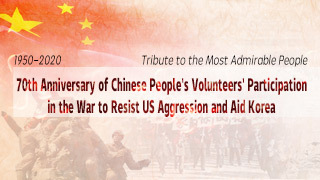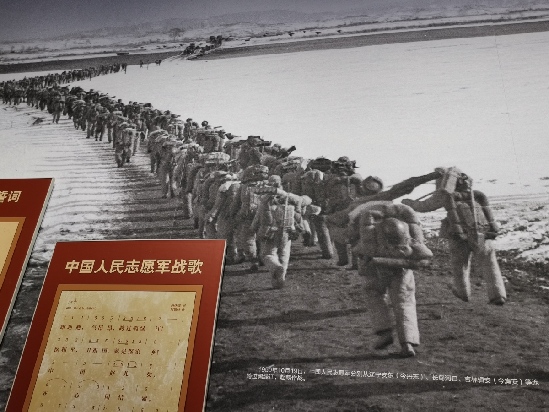
?
By Li Xuanliang, Mei Shixiong, Xu Yang and Wang Qi
Shouldering the trust of the motherland and the people, the Chinese People's Volunteers (CPV) troops crossed the Yalu River on October 19, 1950.
"There was no ceremony, no flowers, and everything was going on in the dark night," said Wu Songlin, an 88-year-old CPV veteran, "There is only one common idea in everyone's mind: to protect our homes and defend our country!"
The Korean War broke out on June 25, 1950. The then Truman administration of the US brazenly intervened with armed forces and gathered the so-called UN Forces to launch a full-scale war against the DPRK. It quickly evolved from a civil war into an international local war of aggression and counter-aggression.
In spite of repeated warnings from the Chinese government, the US-led “UN Forces” crossed the 38th parallel and pressed ahead towards the Yalu River and Tumen River on the China-DPRK border, while frequently sent warplanes to bomb cities and villages in China’s northeast border area, setting fire of war to the territory of the newly-born People's Republic of China.
On September 30, 1950, China’s then Premier and Minister of Foreign Affairs Zhou Enlai issued a clear warning: "The Chinese People cannot tolerate foreign aggression against China, nor will they stand by idly when the people of their neighboring country are subjected to wanton aggression by the imperialists."
However, the US underestimated the determination and strength of the Chinese people so much that it ignored the repeated warnings of the Chinese government.
On October 1, 1950, the troops of the Republic of Korea (ROK) took the lead to cross the 38th parallel, the US troops followed six days later and quickly advanced towards the border between DPRK and China with the intention of occupying Korea as a whole.
At that critical time, the DPRK asked China to join in its resistance against the “UN Forces” by sending troops to Korea.
Would?the People’s Republic of China, who was also waiting to be revived at that time, have the courage and capacity to confront the world's most powerful imperialist country, the US, and win?
In the face of the emergency situation, after making thorough discussions and weighing advantages and disadvantages, the Politburo of the CPC Central Committee reached the consensus that China should and must join the war, which was a strategic decision of historical significance.
The CPV launched consecutively five large-scale campaigns from October 25 of 1950 until June 10 of 1951, which fundamentally changed the situation of the Korean War and forced the "UN Forces" to switch to strategic defense with the battlefront stabilized near the 38th parallel.
Starting from July 10, 1951, the US government had to conduct armistice negotiations with China and DPRK in Kaesong, an inter-Korean border town of the DPRK.
The armistice negotiations went on and off for two years amid battles. The armistice agreement was finally signed on July 27, 1953. The CPV and the Korean People's Army, fighting side by side, defeated the US-led "UN Forces" and won the war.
"The War to Resist US Aggression and Aid Korea is a war of justice to defend peace and resist aggression," said He Lei, former Vice President of the Academy of Military Sciences of the Chinese People’s Liberation Army.
It is precisely because it was a war of justice that the CPV soldiers could possess vigorous fighting spirit and high morale to win more battles.
It is precisely because it was a war of justice that the Chinese people could unite and confront a common enemy. Everyone contributed the best they could and set off an upsurge of joining the army and supporting the CPV troops fighting in the frontline of resisting the US aggression.??
It is precisely because it was a war of justice that the peace-loving countries and people worldwide could sympathize, support, and assist China and the DPRK, which finally won the war and safeguarded peace in Asia and the world.
?

